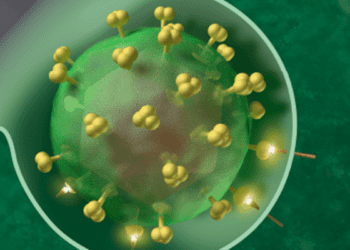Midwifery continuity of care model not associated with improved clinical outcomes compared to standard care
1. A midwifery continuity of care model, involving maternal care before, during, and after birth, yielded no improved clinical outcomes compared to a standard model of care.
Evidence Rating Level: 1 (Excellent)
Around the world, 10% of infants are born preterm and over 1 million die from preterm birth (PTB) complications annually. A systematic review found that the only health system intervention correlated with lower PTBs and higher perinatal survival was midwifery continuity of care. This involves one midwife, or a team of midwives, providing care maternal care before, during, and after the birth. Although past research has shown reductions in PTBs for individuals at low and mixed risk, provided with this care model, research on those at high risk for PTBs is lacking. The current study was a randomized controlled pilot trial comparing clinical outcomes for women at high risk for PTBs, provided with the midwifery continuity of care model, versus the standard maternity care model. This study took place at an inner-city maternity service in London, UK, and consisted of 331 women with 168 randomly assigned to the midwifery continuous care group (also known as the POPPIE group). The primary outcome measured was the initiation and appropriate timing of interventions to prevent/manage PTBs, such as administering antibiotics for UTIs, transvaginal scan assessments, and fetal fibronectin tests. Overall, the study found no significant difference in this outcome, with 83.3% and 84.7% receiving appropriate initiation of PTB interventions in the POPPIE and standard care groups respectively (risk ratio 0.98, 95% CI 0.90-1.08, p = 0.742). Furthermore, the prevalence of complications were similar in both groups, such as pre-eclampsia (7.7% in the POPPIE group, 7.4% in the standard group, effect size 1.05 with a 95% CI 0.49-2.24). There was also no difference in PTBs between groups (18.5% in POPPIE and 11.7% in the standard group, effect size 1.58 with a 95% CI of 0.93-2.69). However, it was found that those in the POPPIE group had a greater likelihood of breastfeeding right after birth and at hospital discharge, as well as initiating skin-to-skin contact after birth. Overall, this study demonstrated the feasibility of implementing a midwifery continuity of care model for mothers at risk of PTBS, although it did not show improved outcomes compared to a standard care model.
Click to read the study in PLOS Medicine
Image: PD
©2020 2 Minute Medicine, Inc. All rights reserved. No works may be reproduced without expressed written consent from 2 Minute Medicine, Inc. Inquire about licensing here. No article should be construed as medical advice and is not intended as such by the authors or by 2 Minute Medicine, Inc.








